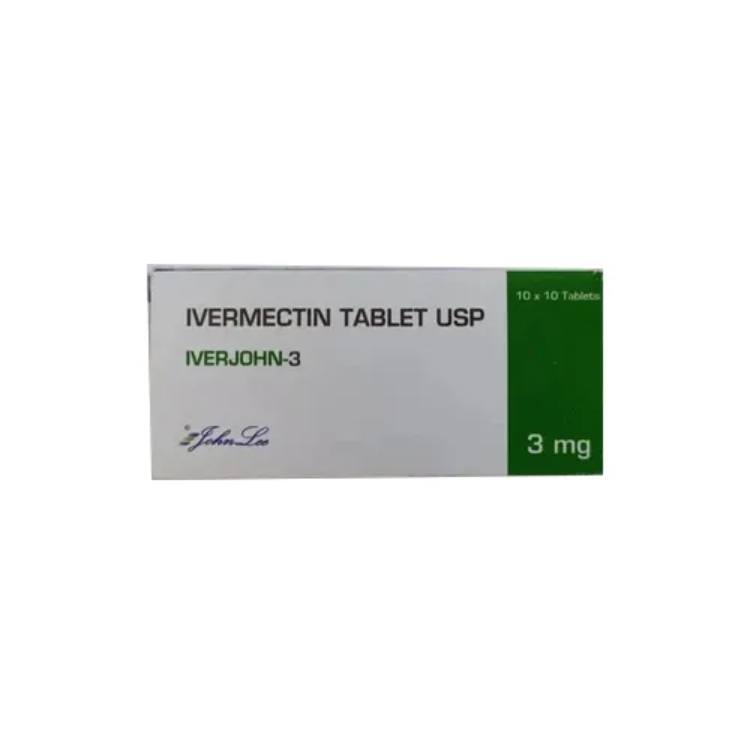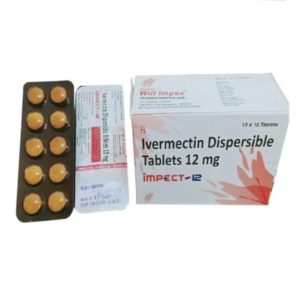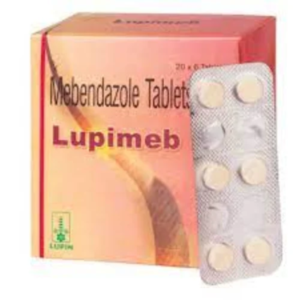Iverjohn-3 (Ivermectin) 3mg Tablets are a potent antiparasitic medication used to treat a variety of parasitic infections in humans. Ivermectin belongs to the class of drugs known as anthelmintics and works by binding to specific ion channels in the nerve and muscle cells of parasites, leading to paralysis and death. This medication is effective against numerous parasitic organisms, making it a valuable treatment option for infections such as strongyloidiasis and onchocerciasis.
Indications:
Iverjohn-3 (Ivermectin) 3mg Tablets are indicated for the treatment of:
- Strongyloidiasis: Infection caused by the parasitic roundworm Strongyloides stercoralis.
- Onchocerciasis (River blindness): Caused by the parasitic worm Onchocerca volvulus.
- Scabies: Effective for treating scabies infestations, particularly in cases resistant to topical treatments.
- Head lice: May be used off-label for the treatment of lice infestations.
Dosage and Administration:
- The dosage of Ivermectin 3mg is typically based on the patient’s body weight and the specific infection being treated:
- For Strongyloidiasis: A single dose of 200 mcg/kg of body weight is usually recommended.
- For Onchocerciasis: A single dose of 150 mcg/kg of body weight is generally prescribed, with potential repeats every 6 to 12 months as necessary.
- For Scabies: A single dose of 200 mcg/kg of body weight may be given, with a follow-up dose after 1-2 weeks if required.
The tablets should be taken on an empty stomach with water, preferably at least 1 hour before or 2 hours after a meal for optimal absorption.
Contraindications:
- Hypersensitivity to Ivermectin or any of its components.
- Caution should be exercised in patients with existing neurological disorders, as Ivermectin can have neurological effects.
Precautions:
- CNS Disorders: Patients with existing neurological conditions should be monitored closely while on Ivermectin.
- Liver Function: Liver function tests may be necessary, as Ivermectin is metabolized in the liver and can cause elevations in liver enzymes.
- Pregnancy and Breastfeeding: The use of Ivermectin during pregnancy or breastfeeding should be approached with caution and only if the benefits outweigh potential risks.
Side Effects:
Common side effects may include:
- Nausea and vomiting
- Dizziness or lightheadedness
- Diarrhea
- Fatigue or drowsiness
- Skin rash or itching
Serious side effects (seek medical attention if these occur):
- Severe allergic reactions (e.g., swelling of the face, lips, or tongue)
- Neurological symptoms such as confusion, tremors, or seizures
- Difficulty breathing or shortness of breath
- Changes in vision
Drug Interactions:
- Ivermectin may interact with medications that induce or inhibit liver enzymes (e.g., certain anticonvulsants or antifungals). Patients should inform their healthcare provider about all medications, supplements, and herbal products they are using to avoid potential interactions.
Storage:
- Store at room temperature (15-30°C or 59-86°F), away from light and moisture.
- Keep out of reach of children.
Packaging:
- Iverjohn-3 (Ivermectin) 3mg Tablets are typically available in blister packs or bottles, with quantities based on the prescribed treatment regimen.





Reviews
There are no reviews yet.